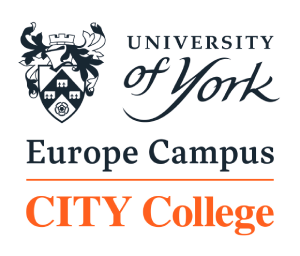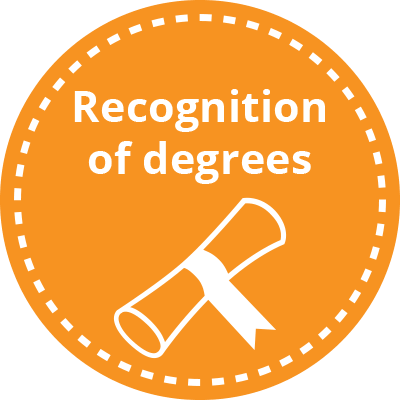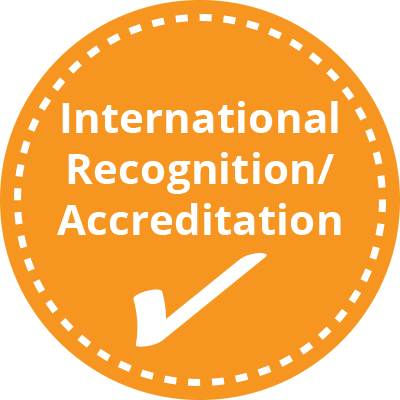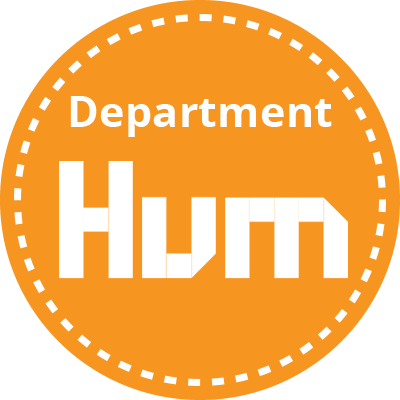English Language, Linguistics and Literature - BA (Hons)

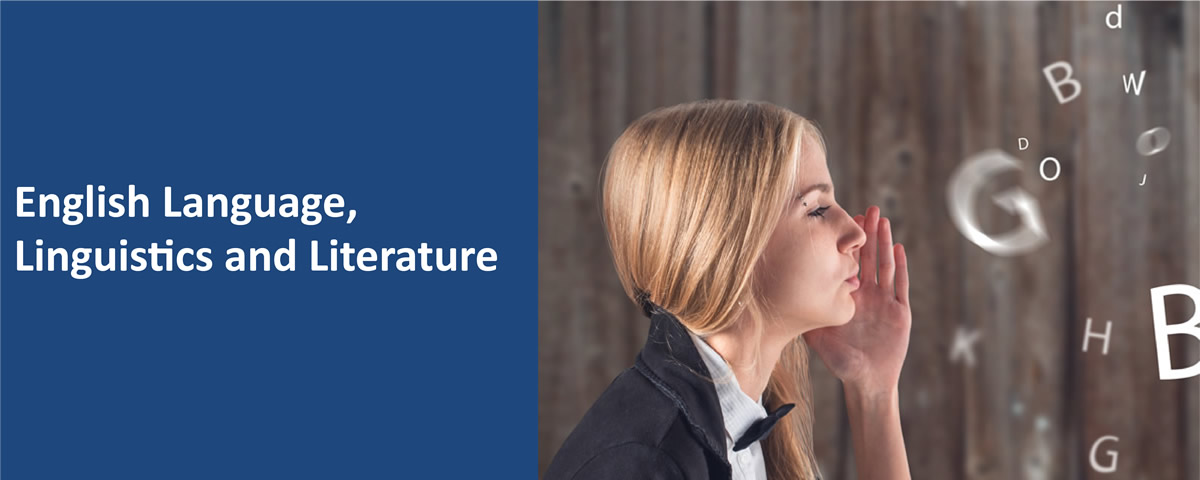
Course duration: 3 years
Degree Title: Successful graduates are awarded the undergraduate degree of the University of York.
Bachelor of Arts (Honours) in English Language, Linguistics and Literature
The title is awarded directly by the University of York.
Language of instruction: English
Fees (Scholarships)
We encourage you to take advantage of our Scholarships scheme to save on tuition fees and secure your spot.
For more information, please fill in the form above or call us at (+30) 2310-224026.
The programme
The BA (Hons) in English Language, Linguistics and Literature offers a solid foundation in the study of language, linguistics, literature, English language teaching, translation, media and film providing students with theoretical knowledge as well as practical skills, thus enhancing their employability profile. The curriculum includes modules such as Introduction to the Study of Language, Practice in English Language Teaching, British Literature, Introduction to Translation, Introduction to Media Studies, Understanding Film, and Language, Gender and Identity. This innovative programme is ideal for anyone who is interested in becoming an English language teacher, a linguist, a literary scholar or wishes to pursue a successful career in translation, media and publishing.
Why choose this course?
-
Degree from the University of York, one of the world’s top universities
-
One of the top 10 universities in the UK for Linguistics, and English Language and Literature
-
Pathway to an exciting career or further studies in teaching, translation, linguistics, literature, media and publishing
-
Innovative modules in film and media studies
-
In-depth theoretical knowledge and vital professional skills
-
Numerous opportunities for hands-on practice
-
Observed teaching practice in authentic foreign language classroom conditions with real students
-
Certificate of experience for the teaching practice
-
Opportunities for potential internships in various fields
-
Project-based and research-led learning through individual or collaborative projects
-
Diverse methods of assessment directly linked to the contemporary job market
-
Highly-qualified and passionate staff
-
Enhancement of 21st century skills
-
Seminars and workshops by experts
- Specialised software and equipment
More reasons why:
-
Individualised learning experience
-
Supportive learning environment with a wide range of support services available to students.
Student Services
-
Free participation in sports and clubs activities.
Sports@CITY | Clubs
-
Our state of the art library, the Information and Learning Commons (ILC) fully supports our students’ study experience.
Our state of the art Library
- Participation in events, seminars and workshops by successful professionals who share their expertise with students.
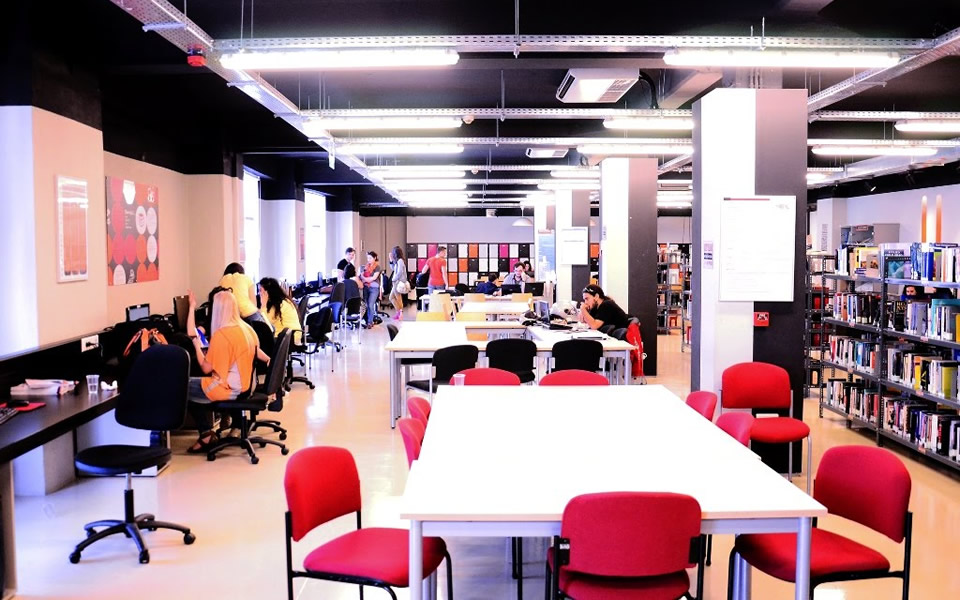

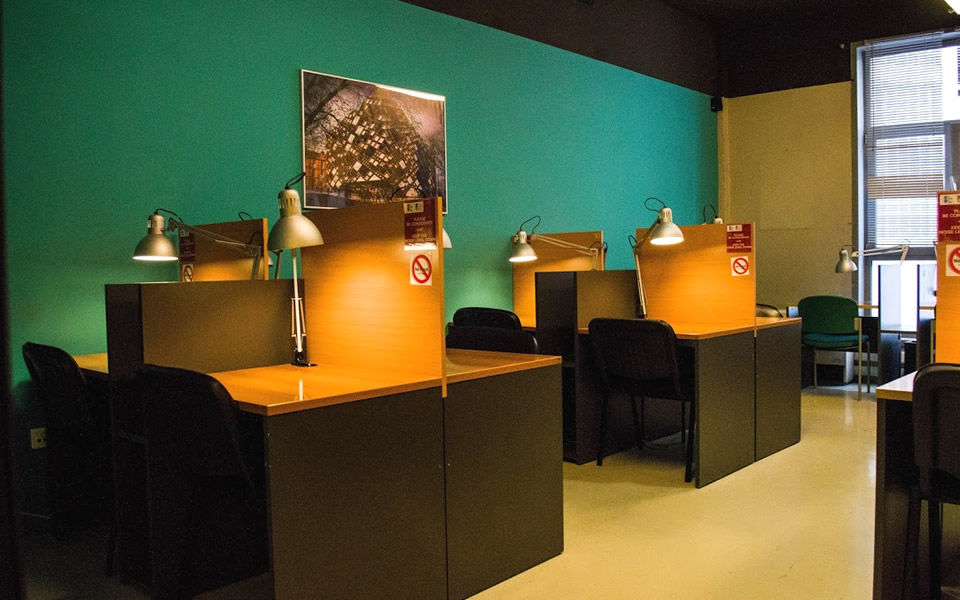
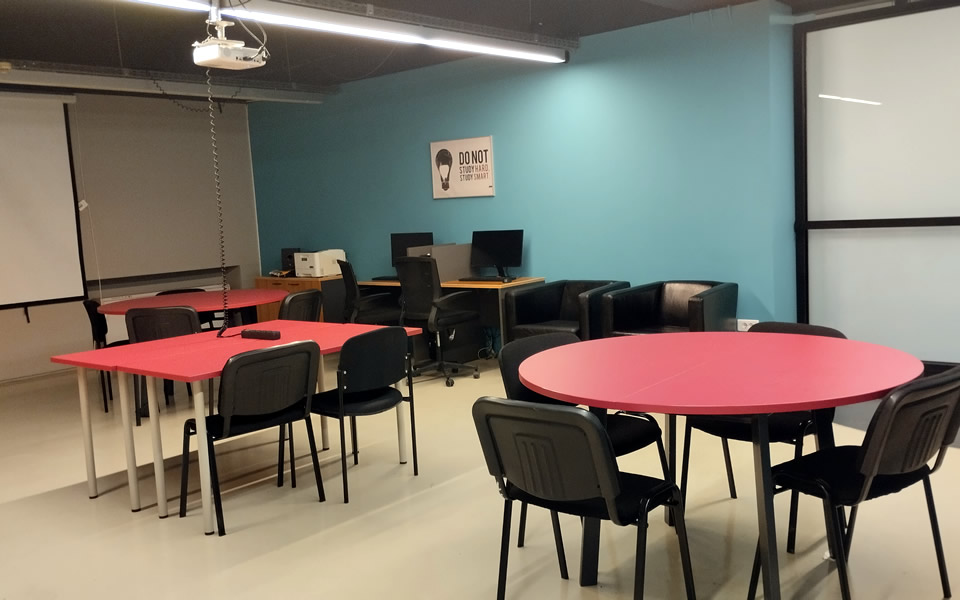
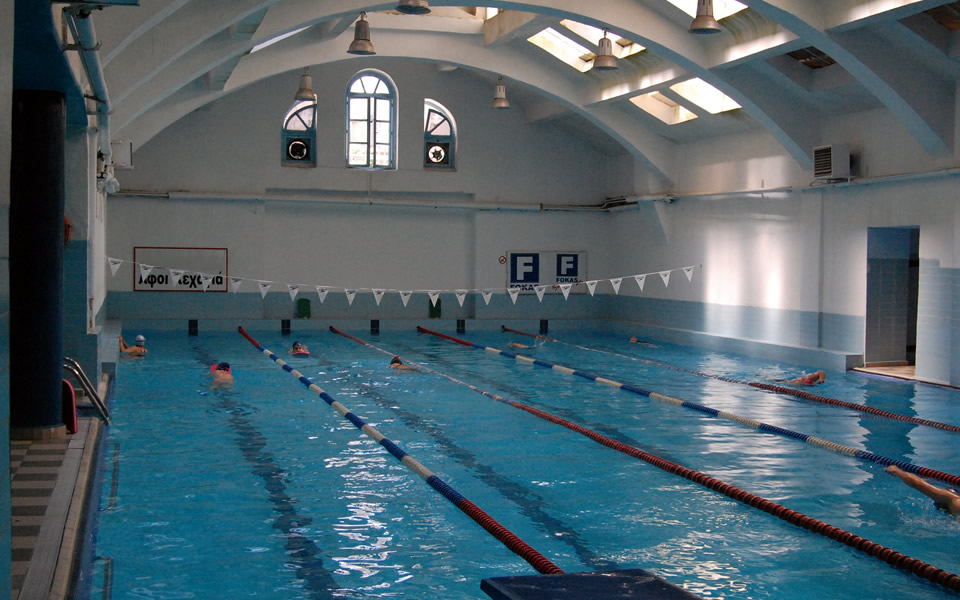
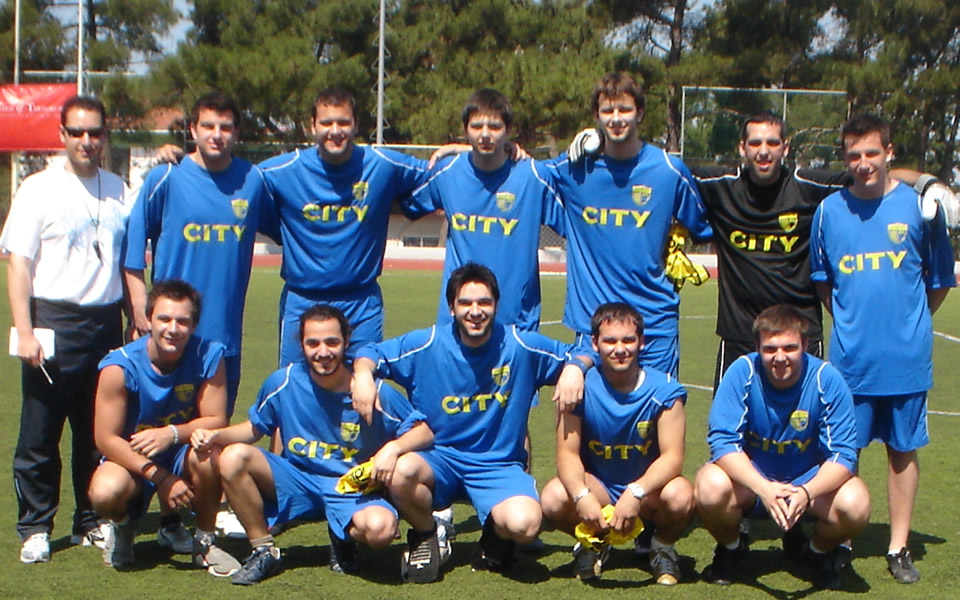


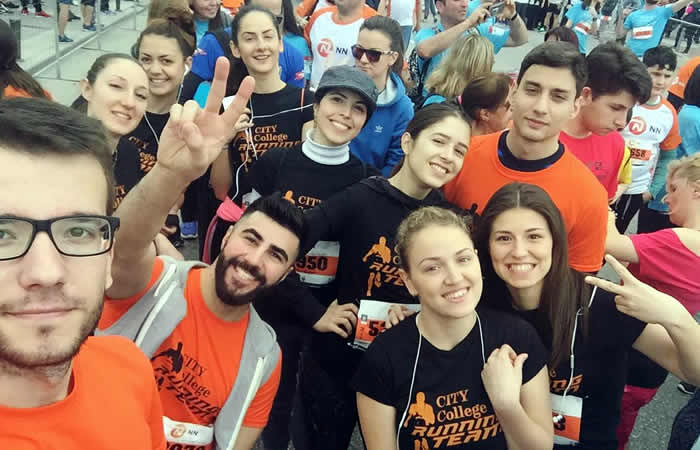
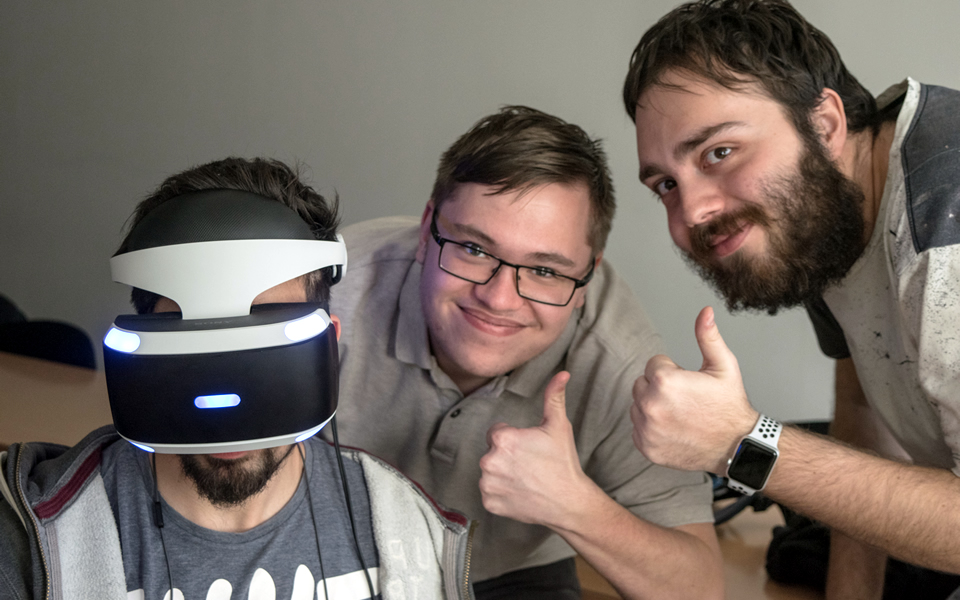
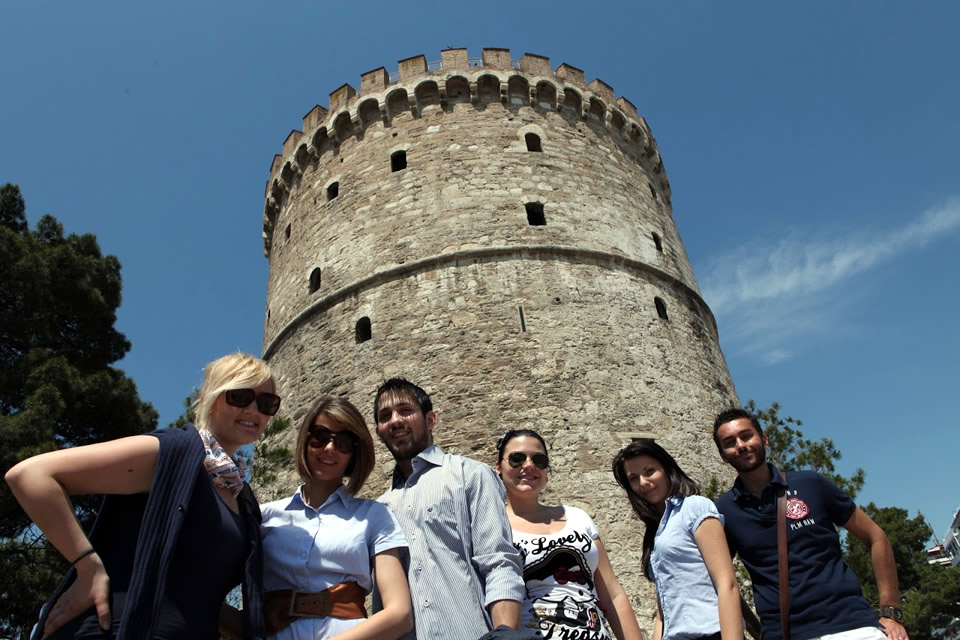
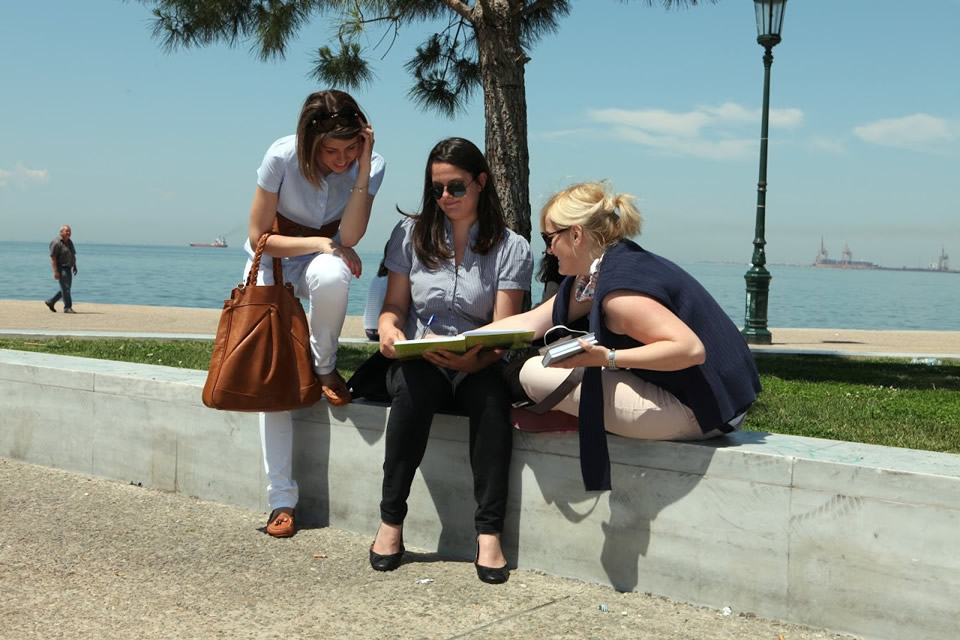



Curriculum
Stage 1
- Introduction to the Study of Language
- Introduction to Literature
- History of the English Language
- American Poetry
- Composition Writing
- Introduction to Film Studies
- Introduction to the Methodology of Language Teaching
- Introduction to Translation
- Introduction to Fiction
- Morphology
- Introduction to Media Studies
- Contemporary Anglophone Theatre
Stage 2
- Semantics
- Syntax
- ELT Classroom: Principles and Practices
- English Phonetics and Phonology
- American Literature and Culture
- Understanding Film
- Sociolinguistics
- Pragmatics
- Second Language Acquisition
- Literary Translation
- British Literature and Culture
- Language Testing and Assessment
Stage 3
- Evaluation and Design of Teaching Materials
- Introduction to Research Practice
- Literary Theory
- Adaptation across Media
- Language, Gender and Identity
- The Victorian Novel
- Dissertation
- School Psychology
- Practice in English Language Teaching
- Contemporary Topics in English Studies
Stage 1
Introduction to the Study of Language
This unit aims at acquainting students with linguistics, the science of language study. More precisely, it assists students in understanding the various aspects of linguistics and its relation to other disciplines and fields. Moreover, it helps students become aware of the nature of human language and its characteristics, components and acquisition. Specific topics include: first and second language acquisition; sounds of language; morphology, grammar and syntax; language and meaning; pragmatics, language variation; as well as language and the brain. ![]()
Introduction to Literature
In this unit students are introduced to the three fundamental types of literature, that is fiction, poetry, and drama. The main focus lies in equipping students with fundamental terminology, and exposing them to literary texts that fall in all three categories. The primary material ranges from the seventeenth century to the present day, and through this the students are able to focus on specific areas such as race, gender, history, and social issues. The unit aims at developing their critical skills and allowing them to approach literary works from different perspectives, employing the technique of close reading. ![]()
History of the English Language
This unit offers an overview of the history of the English language from its origins up to Modern English (i.e. Pre-Old English, Old English, both Early and Late Middle English, and Modern English). It examines the linguistic changes that have occurred, emphasising those linguistic phenomena related to the basic levels of linguistic analysis (namely phonology, morphology, semantics and syntax) through the analysis of observable data. Moreover, the social causes underlying the linguistic changes throughout the history of English as well as issues of language contact, and recent developments are also discussed. ![]()
American Poetry
This module constitutes a survey course in American Poetry, ranging from the Puritan era until the beginning of the 21st century. The American experience and cultural milieu will be critically approached by means of close textual examinations of a range of poems, addressing stylistic innovations, thematic engagements, and cultural concerns, as these emerged throughout the evolution of American poetic production. Notions of form and content will be problematized, in conjunction with the broader social and historical currents which brought them into being. ![]()
Composition Writing
This unit introduces the different types of writing required in an academic as well as professional environment focusing on their structure, raising awareness towards argumentation and critical thinking as well as the matter of appropriate use of sources/references and how to avoid plagiarism. Its main focus is to expose students to different types of writing they will find essential in their academic and professional development such as essays, reports, articles, reviews, letter/email writing, news items and even blog entries. Students practice the basics of writing such as organization, maintaining focus, presenting and developing an argument, objectively reporting information, or persuading through their writing. Sample texts are drawn from authentic material such as textbooks, newspaper and magazine articles, online blogs, promotional material and websites. ![]()
Introduction to Film Studies
In this unit students are exposed to a historical overview of the emergence and development of cinema leading to the current film industry. Its main focus lies in introducing students to how the medium of cinema emerged, how the industry in the United States mainly developed as well as consider the interrelationship with the development of European cinema. The three initial film genres, the western, the musical and the melodrama are introduced alongside their characteristics. Students become aware of the socio-historical, political, economic and cultural contribution of the film medium. The films and respective excerpts studied fall in a diverse spectrum ranging from American to European films and including past classics as well as more contemporary productions. ![]()
Introduction to the Methodology of Language Teaching
This unit offers students a comprehensive overview of the most dominant teaching methodologies that have emerged, whose foundations lie on various theories of second language acquisition. Students are exposed to a wide range of educational approaches, gaining a sound understanding of aspects and parameters involved in foreign language learning and teaching. In accordance with one of the directions of this Programme on English Language, Linguistics and Literature, this unit actually sets the foundations towards helping students develop into future English language teachers making well-informed choices on the basis of appropriate teaching techniques and methods. ![]()
Introduction to Translation
Through this unit students become acquainted with some major introductory concepts in the field of Translation Studies. They examine the history of this discipline, become aware of dominant Schools of translation theory, and familiarise themselves with the current trends in the field. Students are also presented with certain processes involved in translating, along with some key methodological decisions taken during this process. Moreover, some basic implications of the relationship that exists between the original and the translated text, between the author and the translator, as well as between the source and target culture are discussed. ![]()
Introduction to Fiction
This course will introduce students to fiction – the novel and short stories – with an emphasis on exploring traditional and more innovative narrative techniques, manners of constructing the author’s view point, narrative structure, point of view, perspective and focalization, as well as a range of literary tropes and devices. Pivotally, this course will introduce students to a variety of styles ranging from realism and naturalism to allegory, pastiche, modernism and postmodernism and which spans from the 19th century to the present. Students will explore narration and narrative as a social, personal and cultural practice as well as an object of academic study, addressing issues such as what constitutes a story and how it is told all the while exploring a variety of topics relating to the human condition. ![]()
Morphology
This unit offers an essential examination of key linguistic terms and concepts surrounding the study of morphology in the English language. More specifically, the unit familiarises students with concepts such as inflectional and derivational morphology as well as compound words drawing on authentic data mainly from the English language but also cross-linguistically. The unit aims to equip students with the necessary tools for morphological analysis and provide them with ample opportunities for hands-on practice. ![]()
Introduction to Media Studies
This unit introduces students to Media Studies offering an overview of their historical development from their initial appearance and examining their industrial and cultural growth as institutions. Covering areas such as print (newspapers, magazines, books, comic books/graphic novels) and audio/visual (photography, film, television, radio, computer/video games, the internet) this unit explores the contribution of media towards communication, ethical and legal issues and the impact media have had on society. Attention is also given to how each medium consists of similar yet its own unique manifestation of genres and how those have contributed to areas such as literature, translation, education and cultural development. ![]()
Contemporary Anglophone Theatre
This module focuses on contemporary theatrical productions pertaining to the Anglophone context. By critically examining the playscripts, the era, and extra-textual elements of each piece, this module will explore discourse notions pertinent to the specific medium, classic and experimental pieces, as well as cultural and aesthetic elements relevant to contemporary Anglophone cultural production. ![]()
Stage 2
Semantics
This unit offers an essential examination of the concepts, techniques and analytical tools related to linguistic semantics. The unit covers complex issues of meaning relations, focusing on sentence meaning (as opposed to discourse meaning). More specifically, the unit familiarises students with theoretical notions (e.g. reference, sense, truth conditions, sentential relations such as entailment, presupposition, etc) as well as formal techniques such as propositional and predicate logic. The unit aims to equip students with the necessary tools for semantic analysis and offers them the opportunity of hands-on practice. The study of meaning is central to the study of communication in general, as understanding the relation that holds between words and the structure of sentences affects critically the meaning conveyed in human interaction. ![]()
Syntax
This unit covers a wide variety of issues associated with the syntax of natural languages. It examines a number of syntactic theories, focusing mainly on Chomsky’s X-bar Theory and Binding Theory and discusses theoretical questions as well as tools of syntactic analysis. Drawing on authentic language data, mainly from the English language but also cross-linguistically, students are expected to familiarise themselves with the syntactic structure of contemporary English recognising syntactic rules, identifying syntactic generalisations, and applying these rules to the description of specific sentences. Thus, the unit offers a firm grounding in the main theories and methods of syntactic argumentation, emphasising the organising principles of sentences. ![]()
ELT Classroom: Principles and Practices
This unit covers a wide range of topics related to the teaching of English as a foreign/second language to learners of different age groups (e.g. teaching the skills, grammar and vocabulary, class management, lesson planning, etc.). Students are exposed to the most recent developments in the world of ELT involving the most innovative approaches and methods, the use of technology for teaching and learning. They also become aware of controversies and issues surrounding a variety of related issues (e.g. teaching classroom observation, error correction, CBLT, CLIL, etc.) and gain the ability to justify their choices and decisions as future ELT professionals. In accordance with the overall direction of this Programme of study, this unit builds on the foundations laid during the ‘Introduction to the Methodology of Language Teaching’ unit; it further equips the students with skills and tools necessary to develop into future English language teachers making well-informed choices on the basis of appropriate teaching techniques and methods. ![]()
English Phonetics and Phonology
This unit familiarises students with the fundamental notions of English phonetics and phonology. Initially, students are taught the basic concepts of phonetics, exploring mainly the mechanism of speech, the acoustic properties of speech sounds, and the articulation of English consonants and vowels. Then, they are presented with an overview of major tenets of phonology, examining as well the notions of stress, intonation and rhythm, while a number of articulatory processes are also discussed (e.g. deletion, assimilation, etc.). Students are introduced to the symbols of the International Phonetic Alphabet that they employ for transcription purposes, while being offered the opportunity of systematic and ongoing practice in phonetic transcription. ![]()
American Literature and Culture
In this unit students are exposed to a range of American literary texts that fall within the framework of the twentieth century. Through the primary works, the students will be introduced to historical, cultural, scientific, and social developments across the century that have shaped both the literary production and provide the basis for contemporary reality. The main focus lies in exposing students to the basic developments of the twentieth century, and in enabling them to enhance their perspectives on the literary texts to be analyzed. Students will be introduced to the fundamental premises of modernism and postmodernism, as well as increase their awareness of seminal decades such as the 1920s and the 1960s in America. ![]()
Understanding Film
In this unit students are exposed to the film language medium as well as fundamental terminology used in its critical analysis. Its main focus lies on introducing students to the fundamental elements of film, while helping them to develop the analytical skills necessary to produce their own sophisticated and original readings/interpretations of filmic texts. Students practice on how to generate accurate and relevant readings of films through the implementation of film language and extend those readings to interpretations that take the context of genre and culture into account. The texts studied fall in a diverse spectrum of American, European and even Asian cinema ranging from the past to the present day. ![]()
Sociolinguistics
Sociolinguistics explores the relationship between language and society, and this unit will introduce students to variationist approaches to this discipline. Variationists are concerned with examining the relationship between language features and social identities. We will address questions such as: Why do working-class people use more localised language features than middle-class people? Do women use more linguistic innovations than men? To what extent do speakers adapt their speaking style and what causes them to do so? We will also examine how language change occurs over time, how it spreads across social groups and we will identify its movers and shakers. ![]()
Pragmatics
This unit introduces students to pragmatics, the systematic study of meaning dependent on the use of language. In this unit, students investigate how people perform aspects of everyday life with language, how they express politeness, how they use pragmatic strategies to make meaning and ensure understanding and, in general, how language is used in different contexts and domains. Major topics covered by the course include: deixis, reference, presupposition, implicature, speech acts, politeness and cross-cultural pragmatics. ![]()
Second Language Acquisition
This unit introduces students to various theoretical notions and assumptions in Second Language Acquisition (SLA), a field that investigates how language learners/speakers acquire a second language, what the learner of a second language actually learns during this process, and why some learners are more successful in acquiring a second language than others. The unit provides a historical overview about how SLA theories have evolved and it explores how the different arguments developed within SLA have been investigated empirically. It constitutes a solid foundation in SLA, as it adopts an interdisciplinary approach and encourages students to consider SLA from various perspectives. At the same time, the unit offers students hands-on training in analysing second language learner data. ![]()
Literary Translation
This course aims to offer students an in-depth understanding of literary translation as a creative process similar to that of creative writing. To that end, students will become acquainted with notions of textuality, intertextuality, cultural equivalence as well as stylistic and aesthetic devices in order to explore what literature is and what priorities are set in literary translation. Students will further explore formal features associated with various literary forms such as metaphor, metonymy, ambiguity and rhyme, among others, which problematize the process of meaning transfer from one language to another. The literary genres to be explored include prose, poetry, drama, children’s literature and comics. Finally, students will also become acquainted with the state of the profession of the literary translator, the position of translated literature in the publishing sphere as well as relevant international initiatives, organizations and emerging literary translators’ networks. ![]()
British Literature and Culture
In this unit students are introduced to a survey of British literary texts, ranging from the late 18th century to the present day. The main focus lies in introducing a wide variety of literary works by British authors, allowing students to develop their understanding of how British literary production has informed, and has been informed by British culture and the English language. Students will be exposed to literary texts from different historical periods and literary movements, developing also their awareness of how local historical and cultural specificities have developed along the global ones. ![]()
Language Testing and Assessment
This unit provides a comprehensive introduction to key notions and principles in language testing and assessment. Students are exposed to theoretical approaches of formative and summative assessment and testing of language skills and sub-skills (e.g. listening, speaking, reading, writing, vocabulary and grammar) in the context of General English. This unit also equips students with the necessary knowledge and practical skills in the area of language test design and administration as well as evaluation of language proficiency. They become aware of alternative approaches to assessing achievement, various testing techniques, ways to design a language test and evaluate its validity and reliability. Building on the foundations laid during the ‘Introduction to the Methodology of Language Teaching’ unit and ‘ELT Classroom: Principles and Practices’ unit, students also gain knowledge pertaining to controversies surrounding the issues of testing and assessment and further enhance their ability to justify their choices and decisions as future ELT professionals. ![]()
Stage 3
Evaluation and Design of Teaching Materials
This unit focuses on the advanced principles and techniques for designing and evaluating teaching materials. It also aims to train students to analyse the existed published and digital ELT material critically and adapt it in a variety of ways. More precisely, this unit aims to support future teachers in the selection and adjustment of coursebook materials for various teaching contexts, relating materials design to current practices in ELT methodology in the light of contemporary ELT research. Through extensive hands-on-practice, students deal with tasks and materials designed for different age groups and various proficiency levels. ![]()
Introduction to Research Practice
This unit has been designed to familiarise students with principles and tools of research and to equip them with the essential practical and theoretical foundations necessary for independent research. The variety of topics discussed and analysed offers students the opportunity to explore a wide range of key research practices, such as literature review, research design, data collection, data analysis research ethics, etc. Examples of good practice as well as potential practical and theoretical problems are explored in a range of research contexts. Students receive systematic and ongoing practical training in a variety of research methods and the corresponding tools, and they are also encouraged to reflect critically on their own research practices. ![]()
Literary Theory
In this unit students are introduced to a wide spectrum of literary theories, including but not limited to structuralism, post-structuralism, postmodernism, new historicism, feminist, psychoanalytic, postcolonial, and Marxist criticism. The main focus lies in equipping students with fundamental approaches in literary theory, and enabling them to apply such perspectives in the critical analysis of literary texts. Students are exposed to theories that have shaped a range of disciplines, allowing them to develop diverse perspectives on a given topic. The theories selected fall within the temporal framework of the twentieth century, while the texts that will be analyzed in conjunction with the theoretical perspectives range from the 18th century to the present day. ![]()
Adaptation across Media
In this unit students are exposed to the nature of literary and cultural adaptation and its interrelationship with media. In addition to a historical overview displaying how the practice of adaptation emerged, this unit introduces approaches towards literary adaptations and examines the cultural contribution of adaptation that includes areas such as the industry, economy, politics and society. The interrelationship of adaptation and media further sheds light on each area respectively, thus enriching students’ knowledge and appreciation of the practices, the means and the respective adaptations that emerge. An array of adaptation samples studied include film, television, comic book/graphic novel, computer/video games, theatrical performances and even extend to media franchises. ![]()
Language, Gender and Identity
This unit examines the role of language in the construction of gender and identity, a topic which has been widely researched in the field of linguistics, anthropology and sociology since the 1970s. The unit aims to address questions such as: Do men and women speak differently? What is gendered language? How are men and women expected to talk? Can language be sexist? To what extent do gender stereotypes influence language use? How do gender, identity and sexuality interact with language? How do social identities such as age and class affect gender construction and performance? We will also examine the role of gender as a socially-constructed category in language change as well as in issues such as status and politeness. ![]()
The Victorian Novel
This module focuses on the Victorian Age (1830-1901) by means of critically engaging with central literary productions of the era. An age of major historical events and dynamic changes in England’s (and Britain’s) social and cultural landscape, this module seeks to critically explore these influences, cultural impositions, and workings of political forces on the novels of the era by exploring the genres and thematic engagements of seminal authors of the time. ![]()
Dissertation
The purpose of this unit is to provide students with the opportunity to develop an independent research project on a particular topic of their choice, which will fall under the broader area of Applied Linguistics, TESOL, Literary Studies, Media Studies, Translation Studies and Film Studies. Students will decide on an appropriate topic for research, they will form a research question, they will review the literature on the particular subject, they will collect and analyse primary or secondary data, report their findings, make conclusions and recommendations for future research and they will produce an appropriately structured Dissertation. This process will allow students to demonstrate their knowledge on the scientific subject and gain new knowledge on the discipline. It will also demonstrate their ability to conduct genuine research within the specific field of studies and to critically evaluate issues arising from the specific topic. Furthermore, to further support students, a series of lectures and seminars will be delivered during the Spring Semester, followed by tutoring sessions based on the needs of individual research projects. ![]()
School Psychology
This module introduces students to the field of School Psychology as well as its main theories and practices. It aims at helping students understand the influences of biological, cultural and social factors on school performance, and acknowledge diversity in development and learning. ![]()
Practice in English Language Teaching
This unit builds on the three preceding English Language Methodology units in the BA programme of studies. Having been equipped with the theoretical background and the principles underlying teaching English as a foreign/second language, in their Practice in English Language Teaching final-year students are offered the opportunity to practise and critically reflect on their teaching skills. Prior to students’ allocation to a specific class, there are a number of sessions that examine certain main methodological issues associated with ELT. During the semester, students are expected to work closely with the Unit Leader and the actual teacher of their prospective class, and generate a Teaching Practice Portfolio which reflects their preparation for each teaching session and their actual teaching. ![]()
Contemporary Topics in English Studies
This is a ‘hybrid’ unit that builds on key concepts, theories and principles students have explored in their degree programme, further developing and enriching their knowledge of contemporary issues and trends relevant to English Studies in a diverse set of contexts. The areas students will explore range from Forensic Linguistics, Psychology of Language, through Learning difficulties in the EFL classroom to Publishing in the Contemporary Market, Corpus Linguistics and Drama in Education, as well as Fictional Languages, among others. This unit provides the students with the opportunity to combine information from different areas and develop a multidimensional and interdisciplinary perspective of English Studies as a scientific field. ![]()
Entry requirements
View the application and admission requirements of the programme.
How to apply
If you wish to apply for this programme you may view details of the application process.
Any questions?
For further information about the programmes, application process and admissions requirements, please contact: acadreg
The Humanities Department of CITY College, University of York Europe Campus is dedicated to providing high quality education, informed by the latest developments in research and teaching. We offer a variety of programmes from different disciplines ranging from communication and digital media studies, to international relations, linguistics and literature, as well as translation and cultural studies. Our aim is to equip students with the scientific knowledge and 21st century skills needed to excel in their careers, but also to offer them various opportunities for hands-on practice, internships and volunteering. Our passionate and dedicated staff members have a reputation for creating a supportive environment where our students can grow into critical thinkers and highly qualified professionals.
More about the Humanities Department
Research at the Humanities Department
The academic staff of the Humanities Department
Contact the Humanities Department
Recognition and Careers
Accreditation and Recognition
CITY College is strongly committed to quality education and academic excellence. It is officially accredited and recognised by top international accreditation bodies. Read more
Degree and formal qualifications
The degree and formal qualifications our graduates receive.
For Greek graduates only: Recognition of degrees
Άδεια ασκήσεως για διδασκαλία (ΕΟΠΠΕΠ)
Career opportunities
Graduates of this programme can pursue an exciting career in teaching, translation, linguistics, literature, publishing and media. The programme provides students with invaluable practical experience in English language teaching in real classroom conditions through the observed teaching practice module, as well as with a certificate of experience upon its completion. Similarly, the programme offers various internship opportunities in translation and many opportunities for volunteering.
Career, Employability and Enterprise Centre
The Career, Employability and Enterprise Centre, focuses on helping students to set attainable career goals. It offers advice on CVs and cover letters, and on how to effectively handle job interviews. Through career fairs, and different internship programmes, the department aims at constantly bringing students in contact with prospective employers.
Every spring we organize the Annual Career Fair providing our students with the opportunity to get a first feel of job seeking. During the event students and alumni have interview opportunities with corporate recruiters and present their skills and abilities to potential employers. Large companies, organisations and multinationals from different industries across S.E. Europe participate every year in our Career Fair and offer employment and internship opportunities to our students and graduates.
More about our Career Services.
Contact the Career, Employability and Enterprise Centre at careers@york.citycollege.eu
Your Career Journey


A journey to personal and professional development designed to maximise university experience and prepare students for a fulfilling career.
The programme is taught by highly qualified academic staff with extensive teaching and professional experience, and a strong research profile. The administration staff members fully support the processes of the department and provide a wide range of services to our students.
The academic staff & administration staff of the Humanities Department
